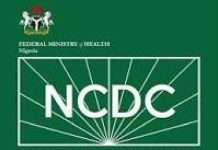Lilongwe — Malawi is again experiencing a crisis in the delivery of essential medicines, with understaffed clinics and erratic drug supplies preventing many dangerously ill patients from accessing treatment.
Frequent drug shortages and stock-outs have plagued the country’s health system in recent years. According to a 2012 report by the UK charity Oxfam, only 9 percent of local health facilities (54 out of 585) had the full Essential Health Package list of drugs for treating 11 common diseases. Additionally, clinics were often out of basic antibiotics, HIV test kits and insecticide-treated mosquito nets, and in many facilities, stocks of vaccines were dangerously low. According to news reports, public hospitals had run out of 95 percent of essential medicines by the end of January.
In early February, President Joyce Banda met with health department officials and healthcare workers to address the crisis.
The situation was brought to light when doctors at Kamuzu Central Hospital in the capital, Lilongwe, wrote an open letter to Banda, calling for an urgent solution to the shortages, which included lack of intravenous fluids, antibiotics, syringes and plasters.
“We have been struggling to provide these supplies, using our private funding donated by friends and families, but we have come to realise that the situation, already dire, is not improving, and our current strategy is neither sufficient nor sustainable. In the meantime, we are experiencing the deaths of patients from treatable diseases (diarrhoea, pneumonia and malaria), which is heart-breaking. Talking to our colleagues, the situation is the same in all public hospitals,” the letter said.
Kamuzu Central Hospital administrator, Naureed Alide, said the doctors decided to write the open letter to the president only after exhausting all other avenues. “There has not been any positive response befitting the current situation,” he said.










